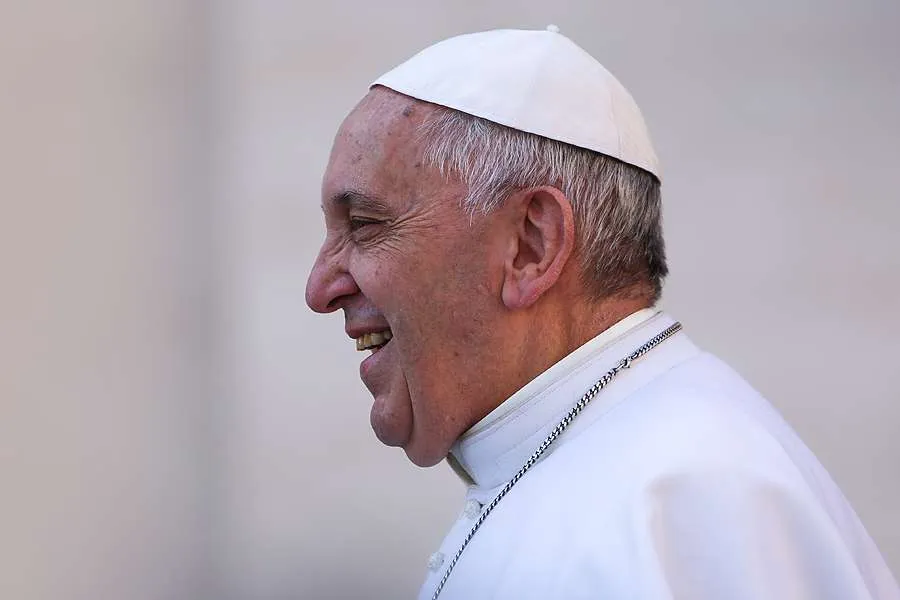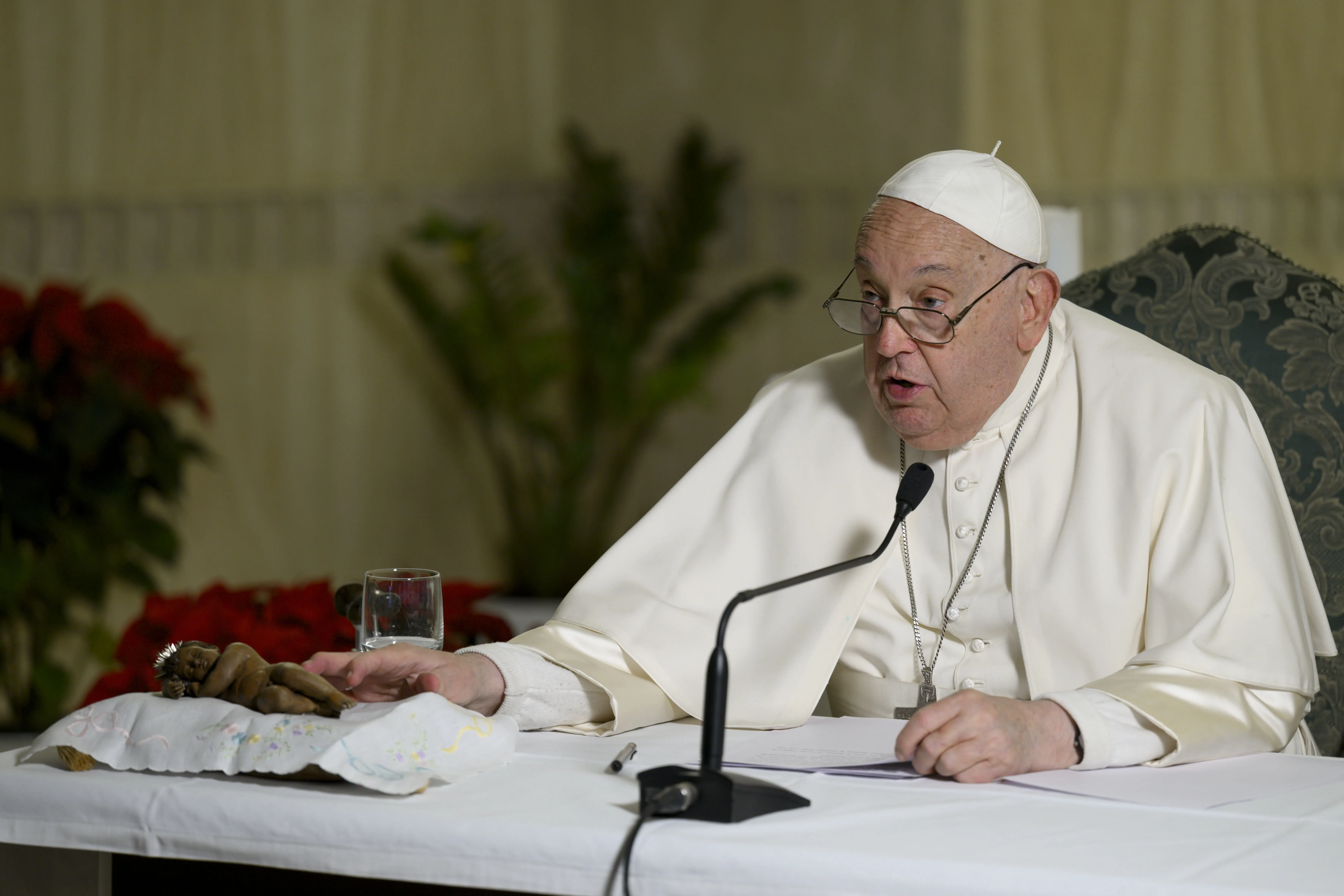Pride can prevent people from recognizing this and from asking for help, he said. “They have to prove themselves self-sufficient.”
He added that likewise, pride makes it difficult to admit mistakes and ask forgiveness. “Why is it difficult to ask for forgiveness? Because it embarrasses our hypocritical image,” he stated.
“And yet, living trying to hide one’s shortcomings is tiring and distressing. Jesus Christ tells us: being poor is an opportunity for grace; and he shows us the way out of this effort.”
In his general audience, Pope Francis taught on the first of the eight beatitudes spoken by Jesus in the Sermon on the Mount in St. Matthew’s Gospel: “Blessed are the poor in spirit, for theirs is the kingdom of heaven.”
The pope is focusing his next series of public audiences on the beatitudes.
“If I do not accept being poor [in spirit], I hate everything which reminds me of my fragility,” he said, “because this fragility prevents me from becoming an important person, a rich person, not only of money, but of fame, of everything.”
According to Francis, those who have worldly goods and comforts are in possession of the “kingdom of this world.” But “even the greatest empires pass and disappear,” he stressed.
He also pointed to the fact that no one can take their wealth and possessions with them after death, noting that he has “never seen a moving truck behind a funeral procession: nobody brings anything.”
“This is true freedom: whoever has this power of humility, service, fraternity is free.”
Pope Francis also stressed in his catechesis that one does not have to transform one’s self to become poor in spirit, but that it is the natural human condition that “we need everything.”








